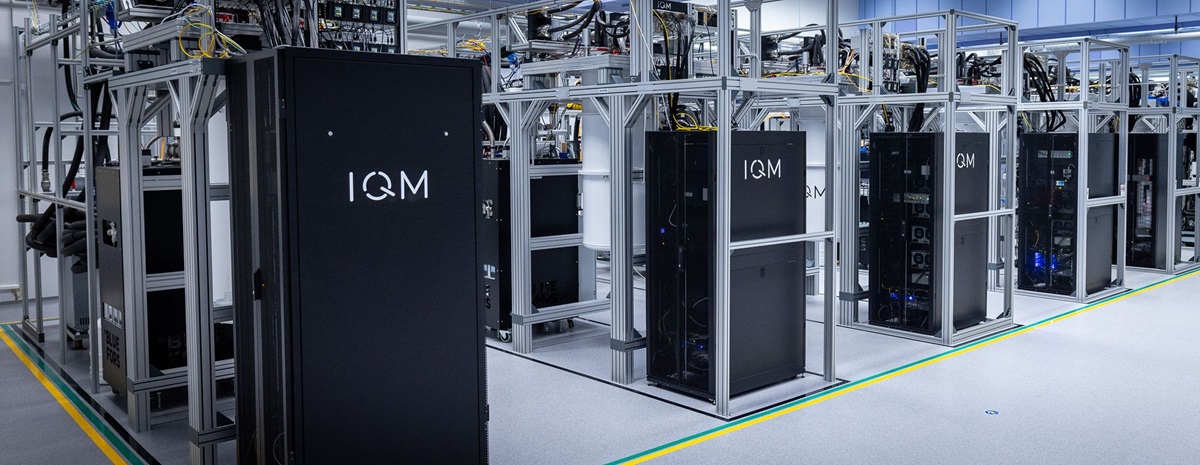In this article about quantum computing it is time to see what kind of companies exists in the ecosystem.
Quantum computer manufacturers are in the focus. Quantum software development companies are presented in a later article. Component vendors are scoped out.
Categorizing quantum companies
The companies working with quantum can be divided roughly to these groups:
- Quantum ecosystem drivers (Microsoft)
- Quantum computer builders (IQM)
- Quantum component vendors (Bluefors)
- Quantum infrastructure engineering software (Q-QTRL)
- Quantum software development tools (Strangeworks)
- Quantum application development (Algorithmiq)
- Management consulting (BCG)
To learn more about quantum related companies, my recommendation is Quantum Tech Pod podcast. They have great interviews of top quantum company CEOs, technology leaders and researchers.
Quantum integration platform Strangeworks gives quite nice summary of companies providing quantum computing.
Quantum computers manufacturers listed
Here are companies that are dedicated mainly to build a quantum computers.
| Company | Founded at | Located | Employees | |
|---|---|---|---|---|
| Atom computing | 2018 | USA | 60 | |
| D wave | 1999 | Canada | 180 | |
| EeroQ | 2016 | USA | 20 | |
| IonQ | 2015 | USA | 320 | |
| IQM | 2018 | Finland | 280 | |
| IBM | - | USA | - | |
| Photonic | 2018 | Canada | 120 | |
| PsiQuantum | 2015 | USA | 300 | |
| Quantinuum | 2021 | USA/UK | 400 | |
| Quantum brilliance | 2019 | Australia | 100 | |
| QuEra | 2018 | USA | 70 | |
| Rigetti | 2013 | USA | 130 | |
| Xanadu | 2016 | Canada | 230 |
Atom computing
Their qubits are neutral atoms that are controlled by lasers. This approach has guaranteed qubit life time up to 40 seconds. This is an order of magnitude more than some other technologies.
The CEO has experience from atomic clocks and superconductors. Atom computing recently announced co-operation with Microsoft.
At least in an interview from 2021 the company did not provide their own software development toolkit.
D Wave
The canadian company is best known of its practical quantum computing applications. It has convincing list of customers who have implemented real use cases.
They rely on quantum computing method known as quantum annealing. In essence the processors have been designed for particular type of optimization problems.
The company provides end-to-end services from the computers to the software and consulting.
Eeroq
100% focusing to build universal quantum computer. Only the hardware part, nothing on software side. According to CEO “they are not even talking to customers”.
Their helium flotation technology is quite unique compared to competitors.
IonQ
The company got quite an untypical start when an investor had read research paper on trapped ion technology and contacted the researchers to found a startup.
The CEO Peter Chapman has super interesting background as a son of astronaut, starting machine learning career at the age of 15 and founding multiple companies. He has also held leader positions such as director of engineering at Amazon Prime.
It is possible to order your own computer or use shared resources remotely.
IQM
A quantum computing company from Finland.
IQM machines use super conducting units mainly because the founder team happened to have research experience on that field.
The company has successful examples of integrating their technology to high performance computers (also known as super computers). Hewlett Packard Enterprise is mentioned as their reference client.
The customer base and thinking of use cases seems to be aligned towards research rather than business.
IQM has an interesting initiative to combine industry, research, startups and other quantum stakeholders in Europe. According to CEO Jan Goetz the alliance is expanding co-operation also to North America.
IBM
IBM says it has worked with quantum technology since 1980. The corporation can be positioned somewhere between computer builder and management consultant.
IBM corporation has 305 000 employees from which 3 000 work in the research department. The best guess internet could provide was that 250 people would be working for quantum computing.
The company provides access to the computers and are known of qiskit software framework.
By their own words qiskit has 400 000 active users.
The big advantage of the tech behemoth is their reliable roadmap for development. They have typically kept the promises and timeline for to achieve certain number of qubits.
Photonic
It is a bit difficult to say where Photonic is standing in the line of quantum companies. They don’t talk about computers but a “quantum platform”.
The company is using silicon qubits. In practice an electron is trapped in place with a magnetic field. This sounds somewhat similar to ion trap technology.
Telecom photons are talked a lot on their technology descriptions. The photons act as links between the qubits to tie them together.
PsiQuantum
PsiQuantum strongly believes that silicon based photonics architecture is the only commercially viable path to build a general purpose quantum computer.
The founders have met at university of Bristol in UK, but the company headquarters is located in Palo Alto, USA.
Quantinuum
Honeywell and Cambridge quantum merged to a new company called Quantinuum.
Honeywell naturally joined to the quantum race as they had relevant experience from industrial automation. Cambridge quantum has excelled in the algorithm and software side of quantum computing.
The trapped ion approach is similar to IonQ, and they have even some same components.
Quantum Brilliance
The only company coming from Australia.
The technology is really interesting as the qubits are trapped inside artificial diamonds. This approach works also in the room temperature, which is huge benefit for scaling.
Quantum Brilliance is the only company talking about taking the quantum computer to edge devices outside the laboratory.
QuEra
The analog quantum computing technology is able to precisely move single atoms. This allows creating quantum graphs in physical space.
It is fascinating to think possibilities to make quantum versions of graph databases and computation.
Rigetti
Primarily manufacturing an universal gate-based quantum computer. Their near term goal is to achieve “narrow” quantum advantage during the upcoming years. Essentially this means being end-to-end solution provider by solving some business problems more efficiently than traditional computers.
Rigetti’s processors are based on superconducting qubits.
The company has been named after its founder Chad Rigetti. His origins on the topic trace back as far as 1980. Eventually Rigetti company spun up from Y Combinator startup program around 2014.
Xanadu
Another company from Canada.
The founder started with a narrow scope of developing a quantum based security system. Investors were more keen to see a full quantum computer and that was the starting point of Xanadu as known today.




Write a new comment
The name will be visible. Email will not be published. More about privacy.